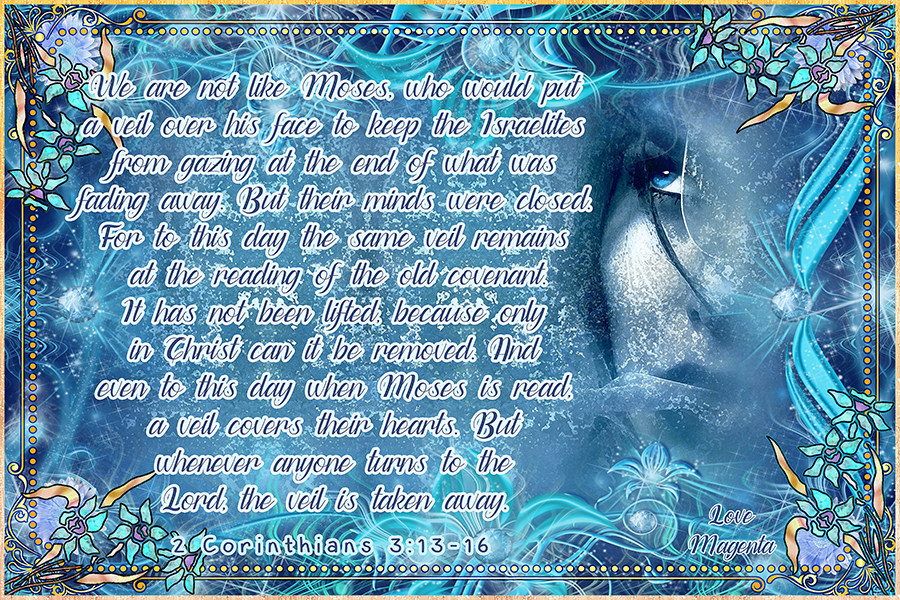Many ( including myself) have noticed that the second epistle of Paul to the Corinthians is generally neglected. As one writer has pointed it there could be several reasons, including the fact that there are some deep theological ideas within this epistle, and the Greek is complex.
Also, in this epistle there is a heavy emphasis on the persecutions and afflictions of the Corinthians as well as those of Paul (which probably no one wants to hear about). But what is also notable is how Paul encourages forgiveness toward a sinning brother who has repented.
In chapter 3 Paul clearly distinguishes between the superiority of the New Covenant and the inferiority of the Old Covenant, and points out how unconverted Jews are spiritually blind. In chapter 4 Paul speaks of the immortal bodies which will be given to Christians, but at the same time he mentions the Judgment Seat of Christ. He also makes it plain that when a Christian dies, his soul and spirit go to Heaven to be with the Lord.
Paul spends a great deal of time in speaking about his ministry and authority as an apostle, but at the same time he makes sure that people understand how critical was the ministry of Titus. Perhaps the preachers who focus on tithing avoid this epistle altogether because it says nothing about tithing but a great deal about Christian liberality in the midst of poverty, and the obligation of Christians to meet the needs of their poorer brethren (not wealthy evangelists with lavish lifestyles preaching the Prosperity Gospel).
Finally Paul tells us about how he was taken up into Heaven and into Paradise itself, and how he heard words uttered which could not be revealed to men. He speaks of "the signs of an apostle" -- that he was a miracle worker as much as all the other apostles, but at the same time he was given " a thorn in the flesh" -- a physical disability which hindered him but which was not taken away by the Lord. Rather he was given grace to endure it. This would encourage Christians with ongoing disabilities.
What is most noticeable is that Paul does not mince his words, as we see in 2 Cor 13:9,10: For we are glad, when we are weak, and ye are strong: and this also we wish, even your perfection. Therefore I write these things being absent, lest being present I should use sharpness, according to the power which the Lord hath given me to edification, and not to destruction.
There is much edification in this epistle, and there should definitely be a greater focus on all the things revealed therein.
Also, in this epistle there is a heavy emphasis on the persecutions and afflictions of the Corinthians as well as those of Paul (which probably no one wants to hear about). But what is also notable is how Paul encourages forgiveness toward a sinning brother who has repented.
In chapter 3 Paul clearly distinguishes between the superiority of the New Covenant and the inferiority of the Old Covenant, and points out how unconverted Jews are spiritually blind. In chapter 4 Paul speaks of the immortal bodies which will be given to Christians, but at the same time he mentions the Judgment Seat of Christ. He also makes it plain that when a Christian dies, his soul and spirit go to Heaven to be with the Lord.
Paul spends a great deal of time in speaking about his ministry and authority as an apostle, but at the same time he makes sure that people understand how critical was the ministry of Titus. Perhaps the preachers who focus on tithing avoid this epistle altogether because it says nothing about tithing but a great deal about Christian liberality in the midst of poverty, and the obligation of Christians to meet the needs of their poorer brethren (not wealthy evangelists with lavish lifestyles preaching the Prosperity Gospel).
Finally Paul tells us about how he was taken up into Heaven and into Paradise itself, and how he heard words uttered which could not be revealed to men. He speaks of "the signs of an apostle" -- that he was a miracle worker as much as all the other apostles, but at the same time he was given " a thorn in the flesh" -- a physical disability which hindered him but which was not taken away by the Lord. Rather he was given grace to endure it. This would encourage Christians with ongoing disabilities.
What is most noticeable is that Paul does not mince his words, as we see in 2 Cor 13:9,10: For we are glad, when we are weak, and ye are strong: and this also we wish, even your perfection. Therefore I write these things being absent, lest being present I should use sharpness, according to the power which the Lord hath given me to edification, and not to destruction.
There is much edification in this epistle, and there should definitely be a greater focus on all the things revealed therein.
-
3
- Show all





